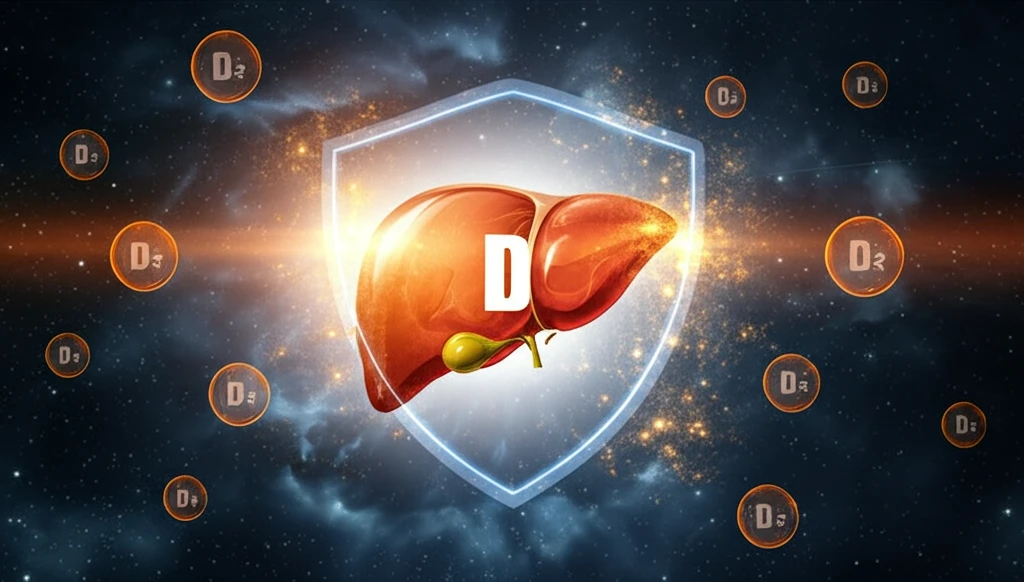
Sunshine for Your Liver: Unlocking Vitamin D's Healing Potential in Liver Fibrosis
"Emerging research highlights the promising role of Vitamin D in combating liver fibrosis, offering new avenues for treatment and prevention."
Liver fibrosis, a critical stage in chronic liver diseases (CLDs), is a major health concern, often leading to severe complications and the need for liver transplantation. While factors like viral infections, metabolic issues, and alcohol abuse are known drivers, current treatments often fall short in preventing disease progression. This gap underscores the urgent need for innovative diagnostic tools and therapies targeting the underlying mechanisms of liver fibrosis.
At the heart of liver fibrosis is the activation of hepatic stellate cells (HSCs) and the excessive buildup of extracellular matrix (ECM) components. Activated HSCs transform into myofibroblasts, ramping up ECM protein synthesis and releasing cytokines that fuel the fibrotic process. Transforming growth factor-β (TGF-β) signaling is a key pathway in this process, making it a prime target for anti-fibrotic strategies.
Now, emerging evidence points to a surprising ally in the fight against liver fibrosis: Vitamin D. Known for its role in bone health and calcium regulation, Vitamin D is showing potential in hepatic pathophysiology. This article explores Vitamin D's protective mechanisms against liver fibrosis, summarizing current knowledge and future therapeutic strategies.
The Sunny Side of Liver Health: How Vitamin D Works

Vitamin D, beyond its well-known role in bone health, appears to exert a protective effect against liver fibrosis by directly influencing hepatic stellate cells (HSCs). These cells, key players in the development of liver scarring, are modulated by Vitamin D through its receptor (VDR).
- VDR Activation: Vitamin D activates its receptor (VDR) in hepatic stellate cells, leading to the suppression of pro-fibrogenic genes.
- TGF-β Inhibition: Vitamin D interferes with the TGF-β/SMAD signaling pathway, a critical driver of fibrosis.
- ECM Modulation: It helps to reduce the synthesis of extracellular matrix proteins, preventing excessive scarring.
- Clinical Evidence: Studies show that sufficient Vitamin D levels correlate with reduced liver fibrosis and improved outcomes in liver diseases.
Future Directions: A Brighter Outlook for Liver Health
Vitamin D supplementation holds considerable promise as a cost-effective and accessible strategy to support liver health and potentially combat liver fibrosis. While existing research paints an encouraging picture, further investigations are essential to fully clarify Vitamin D's role in inhibiting liver fibrogenesis. Future studies should focus on rigorously evaluating the safety and effectiveness of Vitamin D supplementation as a relatively inexpensive treatment for liver fibrosis in patients with chronic liver diseases, offering hope for improved outcomes and a better quality of life.
